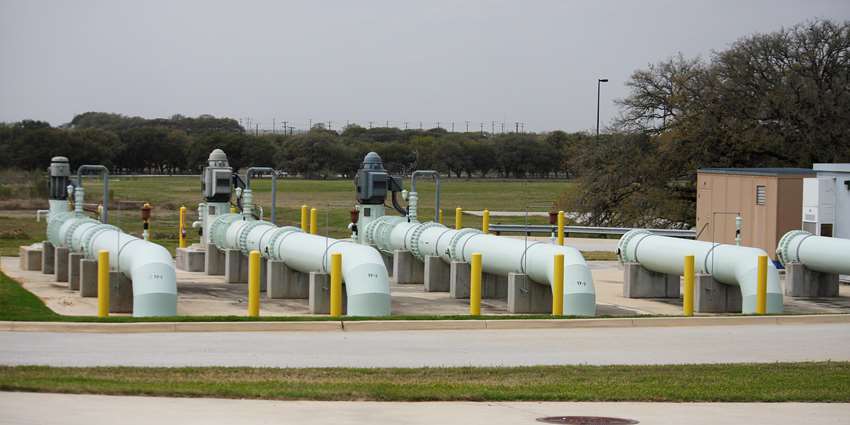Dr. Gretchen Miller, associate professor in Texas A&M University’s Zachry Department of Civil Engineering, researches a topic that is getting attention in the Texas water news: managed aquifer recharge or aquifer storage and recovery.
These methods are used to intentionally refill aquifers, or water sources that live in permeable rock, from which many communities draw groundwater. Using these techniques, municipalities and utility districts can draw water from the aquifers during times of drought but also put water back in them during rainier seasons.
“We are hoping to advance the science on aquifer storage and recovery in order to help local entities better implement these techniques as water conservation strategies,” Miller said in a Texas A&M Engineering news story. “We want to determine how well current techniques are working and how they can be improved.”
Miller’s research focuses on the feasibility of these water extraction and recharge methods and seeks to improve not only the efficiency of how water is removed or stored in the aquifer, but the quality of water that is used. In working with these systems, Miller is looking for the best places to implement them across the state and has worked with water management agencies in San Antonio, El Paso and Harris County, Texas.
“How the aquifers are used and managed changes depending on the geology,” Miller said. “We can use models to represent a typical managed aquifer recharge system and then test different methods of running it, when and how we extract or inject water and how we can best use the wells.”
Miller; Benjamin Smith, doctorate student in the civil engineering department; and Dr. Zhuping Sheng, resident director of the Texas A&M AgriLife Research and Extension Center at El Paso; recently published some of their findings in the Journal of Hydrology: Regional Studies.
Read Miller’s Q&A with Texas Water Resources Institute’s Conservation Matters about the research needs following Hurricane Harvey and its 2014 Meet a Scientist article on Miller.

